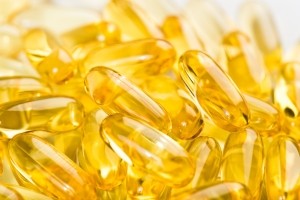‘Exciting news’: High dose omega-3 may boost ‘stress resilience’

Researchers at The Ohio State University reported that omega-3 supplementation at a dose of 2.5 grams per day for four months blocked the stress-related decreases in the activity of telomerase (an enzyme that rebuilds telomeres) and anti-inflammatory cellular signaling.
In addition, a lower dose (1.25 grams per day), was associated with reductions in overall levels of the stress hormone cortisol and IL-6 (a pro-inflammatory cytokine) levels in 138 sedentary, overweight, middle-aged men and women, according to findings published in Molecular Psychiatry.
Commenting on the clinical significance of the findings, the researchers note that most American adults are not consuming the recommended levels of omega-3. And while dietary and lifestyle changes are often difficult to maintain, the high rates of compliance with omega-3 supplementation reported in this study suggest that this kind of dietary change is feasible, they said.
“Moreover, these findings suggest that apart from other dietary changes, daily omega-3 supplementation alone may help protect cells from the toll of acute stressors, thereby facilitating a healthy biological aging process.”
“Research in this area is progressing in the right direction”
Commenting independently on the study’s findings, Harry Rice, PhD, VP of regulatory & scientific affairs for the Global Organization for EPA and DHA Omega-3s (GOED), told us: “That omega-3s have a stress-buffering effect on relevant biomarkers is exciting news, particularly during a time when many people continue to suffer from increased levels of stress and mental health issues.
“While many questions remain to be answered before a recommendation can be made related to omega-3 intake and outcomes related to stress reduction, research in this area is progressing in the right direction. Of particular interest is knowing whether or not the present results can be generalized across the population as a whole.”
Study details

Led by Janice Kiecolt-Glaser, professor of psychiatry and psychology and director of the Institute for Behavioral Medicine Research at Ohio State, the researchers randomly assigned the 93 women and 45 men to one of three groups: Placebo or one of two omega-3 groups receiving 1.25 g/d or 2.5 g/d of omega-3 for four months. Participants underwent the Trier Social Stress Test before and after the intervention period. The Trier Social Stress Test is a 20-minute test combining a speech and a math subtraction task that is known to reliably produce an inflammatory stress response.
Results showed that, compared to placebo, the high dose omega-3 supplement suppressed damage during the stress test, with cortisol and IL-6 levels reduced by an average of 19% and 33%, respectively.
In addition, both omega-3 doses were associated with no changes in telomerase levels in the two hours after the stress test, indicating that any needed stress-related cell repair - including telomere restoration - could be performed as usual. On the other hand, the placebo group displayed decreases in telomerase of about 24%, while levels of anti-inflammatory IL-10 also decreased by an average of at least 20%.
The researchers also suggested the reduction in stress-related inflammation may also help omega-3s to disrupt the connection between repeated stress and depressive symptoms.
“Not everyone who is depressed has heightened inflammation - about a third do. This helps explain why omega-3 supplementation doesn't always result in reduced depressive symptoms,” said Prof Kiecolt-Glaser. “If you don't have heightened inflammation, then omega-3s may not be particularly helpful. But for people with depression who do, our results suggest omega-3s would be more useful.”
Telomeres
The aging and lifespan of normal, healthy cells are linked to the so-called telomerase shortening mechanism, which limits cells to a fixed number of divisions. During cell replication, the telomeres function by ensuring the cell's chromosomes do not fuse with each other or rearrange, which can lead to cancer.
Elizabeth Blackburn, a telomere pioneer at the University of California San Francisco, likened telomeres to the ends of shoelaces, without which the lace would unravel.
With each replication the telomeres shorten, and when the telomeres are totally consumed, the cells are destroyed (apoptosis). Previous studies have also reported that telomeres are highly susceptible to oxidative stress and inflammation. Telomere length is also recognized as a marker of biological aging.
“The fact that our results were dose-dependent, and we're seeing more impact with the higher omega-3 dose, would suggest that this supports a causal relationship.”“You could consider an increase in cortisol and inflammation potential factors that would erode telomere length,” said Annelise Madison, lead author of the paper and a graduate student in clinical psychology at Ohio State. “The assumption based on past work is that telomerase can help rebuild telomere length, and you want to have enough telomerase present to compensate for any stress-related damage.
Source: Molecular Psychiatry
Published online ahead of print, doi: 10.1038/s41380-021-01077-2
“Omega-3 supplementation and stress reactivity of cellular aging biomarkers: an ancillary substudy of a randomized, controlled trial in midlife adults”
Authors: A.A. Madison, et al.

















